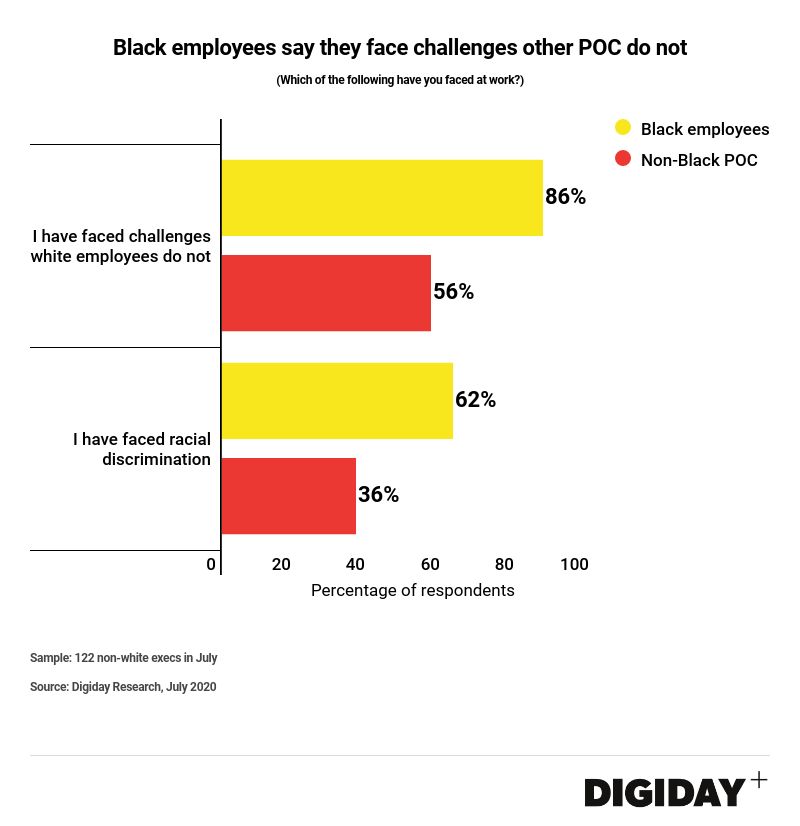Secure your place at the Digiday Media Buying Summit in Nashville, March 2-4
Digiday Research: 41% of Black employees say they feel they fit in at work

This research is based on unique data collected from our proprietary audience of publisher, agency, brand and tech insiders. It’s available to Digiday+ members. More from the series →
The discussion around systemic injustices faced by Black people, as well as other non-white people across the country and the world continues.
In a new, wide-ranging survey about diversity, discrimination and experiences at work, Digiday Research found that the Black experience at work varies widely with the experiences of other people of color, and white employees.
For example, about 41% of Black employees said they felt like they fit in at work, while 63% said they downplayed their culture or backgrounds in the workplace. Among non-Black POC (those identifying as Hispanic, Asian or other minority races), 62% said they fit in at work. Three in four White people said they felt they did.
The below chart illustrates how differently these employees experience work: 70% of Black employees in media are looking for a new job, compared with 35% of White employees. Only 31% of Black employees are proud of their companies, compared with 64% of White.

Digiday Research also ound that 64% of non-white employees in media and marketing surveyed said they face challenges at work that white employees do not face. About 43% said they have faced racial discrimination at work. When Black people were excluded, 56% non-Black people of color (those identifying as Hispanic, Asian or other minority race) said they’d faced challenges.
Among those who said they were Black, 86% said they face challenges at work non-white employees do not face, while 62% said they’d faced racial discrimination at work.

More in Media

From feeds to streets: How mega influencer Haley Baylee is diversifying beyond platform algorithms
Kalil is partnering with LinkNYC to take her social media content into the real world and the streets of NYC.

‘A brand trip’: How the creator economy showed up at this year’s Super Bowl
Super Bowl 2026 had more on-the-ground brand activations and creator participation than ever, showcasing how it’s become a massive IRL moment for the creator economy.

Media Briefing: Turning scraped content into paid assets — Amazon and Microsoft build AI marketplaces
Amazon plans an AI content marketplace to join Microsoft’s efforts and pay publishers — but it relies on AI com stop scraping for free.






